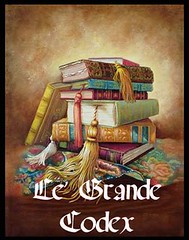At first I wasn’t really psyched about reading the book but thought that I probably should give it a try since the movie came……it actually proves a little help to read both the book and watch the movie ‘cause it helps to form an opinion while writing the review. And I definitely loved it. Now I’m ready to watch the movie. Water For Elephants by Sara Gruen is definitely a pleasant and an interesting read for the summer.
Here is the summary for the book:
Though he may not speak of them, the memories still dwell inside Jacob Jankowski’s ninety-something-year-old mind. Memories of himself as a young man, tossed by fate onto a rickety train that was home to the Benzini Brothers Most Spectacular Show on Earth. Memories of a world filled with freaks and clowns, with wonder and pain and anger and passion; a world with its own narrow, irrational rules, its own way of life, and its own way of death. The world of the circus: to Jacob it was both salvation and a living hell. Jacob was there because his luck had run out - orphaned and penniless, he had no direction until he landed on this locomotive ‘ship of fools’. It was the early part of the Great Depression, and everyone in this third-rate circus was lucky to have any job at all. Marlena, the star of the equestrian act, was there because she fell in love with the wrong man, a handsome circus boss with a wide mean streak. And Rosie the elephant was there because she was the great gray hope, the new act that was going to be the salvation of the circus; the only problem was, Rosie didn’t have an act - in fact, she couldn’t even follow instructions. The bond that grew among this unlikely trio was one of love and trust, and ultimately, it was their only hope for survival.
Water for Elephants is told in the first person but from two different perspectives—Jacob Jankowski at 23 years of age and again, at 93 years old. Gruen seamlessly weaves the chapters between past and present. Jacob at 23 is finishing up his last semester at Cornell Veterinary School when a family tragedy causes him to flee. He finds himself on a train for the Benzini Brothers Most Spectacular Show on Earth in 1931. Needing a vet, the circus hires young Jacob to tend to their menagerie. Jacob at 93 resides in a nursing home where he laments the curses of old age, the passing of his wife, and the waning affection of his family. The arrival of a visiting circus triggers a flashback to his youthful circus experiences.
The story is related in the somber tones of the Depression, the hardscrabble and often unscrupulous business of a traveling circus and the heartless despots who make their fortunes on the backs of men who must do anything to survive. Star performer Marlena, an equestrian, is sensitive to the needs of her horses, although her mercurial husband, August, the trainer, is obsessively jealous and given to unspeakable cruelties. Uncle Al, Benzini Brothers circus owner-by-default, is a ruthless businessman who cares little for man or beast, engaged in a quest for fame to rival the great Ringling Brothers.With his advanced training in veterinary medicine, Jacob does his best to protect the animals from their harsh existence, especially Rosie, an elephant purchased to replace Marlena’s lead horse. Jacob and Rosie share an affinity for one another, the huge creature at times almost human. Because of his growing affection for Marlena, Jacob suffers August’s increasing affronts, caught in a cycle of inevitable violence, certain of a reckoning.
1931 is a hard time for almost all Americans, and the circus workers are as hard hit as any. Most are one step away from being homeless and jobless. Conditions on the circus train are harsh for most. Many workers go weeks without being paid, and they tend to disappear during the night when times are tough (management has them thrown off the train). The menagerie is often times treated better than the workers. But the circus does provide three meals a day and a place to sleep—even it if might mean a horse blanket on a train bed floor. Jacob discovers very quickly that he’s just about the only advocate the animals have and he must battle a ruthless owner (Uncle Al) and a crazy equestrian director (August).
Any circus has more than their fair share of interesting characters, and Gruen’s circus is no exception. In addition to Uncle Al and August, there is Walter (the midget clown), Marlena (an equestrian with whom Jacob falls in love), and Grady and Camel (workers). One of the most sympathetic characters in Water for Elephants is Rosie, the elephant—who shares more “human” characteristics and feelings than some of the circus bosses. The tender-hearted Jacob quickly grows to manhood as he is forced to protect both animals and coworkers from abuse and worse.
In chapters that move flawlessly back and forth in time, from the rowdy circus atmosphere to the antiseptic corridors of the assisted living home, the world is viewed through Jacob’s perspective, as he rages helplessly against the decrepitude of old age and the secrets of the past. In prose both poignant and infinitely tender, Jacob dwells in both worlds, revealing the wounds of the past and the sorrows of the present.
In one touching scene, Jacob awaits a family member to escort him to the circus, yearning for the Big Top with every fiber of his being, craving the familiar sights and smells of that pivotal summer of `31, the roustabouts, the kinkers, the rubes, the animals. The denouement is devastating, as inescapable as the indifferent world that turns a blind eye to the vagrants of the 30’s. Yet Jacob’s spirit retains the essence of his kind nature and a respect for others, a man who will not be broken by circumstances. All is redeemed in a coup d’grace that will leave the reader strangely satisfied and richer for having met this raggedy tribe of miscreants and lost souls.
The most interesting aspect of the book is all the circus lore that Gruen has so carefully researched. She has all the right vocabulary: grifters, roustabouts, workers, cooch tent, rubes, First of May, what the band plays when there’s trouble, Jamaican ginger paralysis, life on a circus train, set-up and take-down, being run out of town by the “revenooers” or the cops, and losing all your hooch. There is one glorious passage about Marlena and Rosie, the bull elephant, that truly evokes the magic a circus can create. It is easy to see Marlena’s and Rosie’s pink sequins under the Big Top and to imagine their perfect choreography as they perform unbelievable stunts. The crowd loves it—and so will the reader. The ending is absolutely ludicrous and really quite lovely.
Genre : Historical Contemporary Ficition
Publisher: Algonquin Books
Rate: 5/5 (It was amazing, go for it)
Publisher: Algonquin Books
Rate: 5/5 (It was amazing, go for it)






















0 comments:
Post a Comment